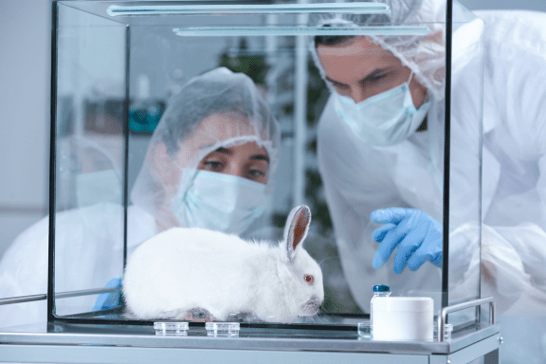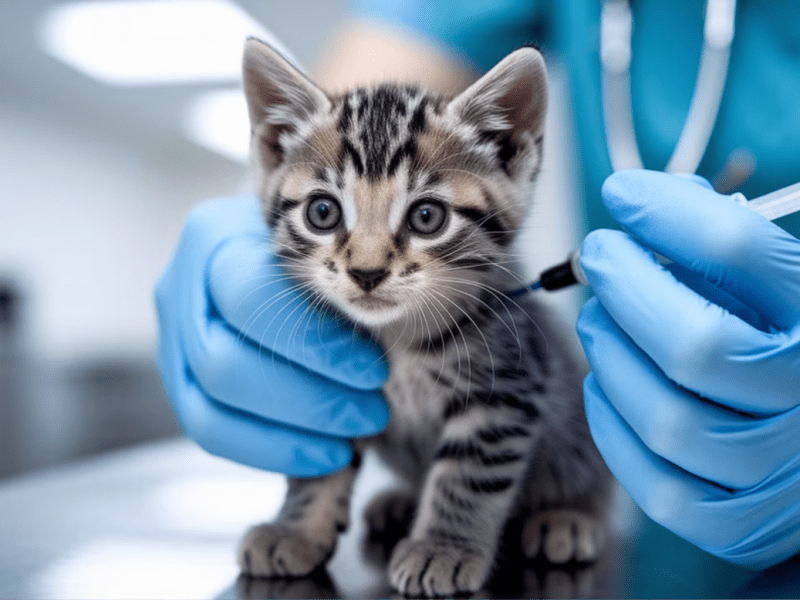Pet rabbits make cherished friends because of their amiable nature and lovely appearance. Rabbits can, however, contract various ailments, illnesses, and emergencies, just like any other pet.
Responsible rabbit ownership requires a thorough understanding of these prevalent health concerns. In this article, we’ll review ten of the most common health issues that rabbit owners need to be aware of.
1. Dental Problems
Rabbits’ teeth are constantly growing, and if they are not taken care of, they may experience dental problems, including enlarged teeth or abscesses. These issues may make it difficult for your pet to eat and cause them to feel highly uncomfortable. Regular veterinary dental examinations and the provision of suitable chew toys can help avoid tooth issues.
1. Gastrointestinal Stasis
Gastrointestinal stasis, often known as “GI stasis,” is a condition when the digestive system of the rabbit slows down or stops functioning entirely. Stress, an unhealthy diet, or underlying medical conditions may be to blame. Reduced appetite, bloating, and a lack of feces are symptoms. GI stasis can be fatal. Thus, immediate veterinarian care is crucial.
2. Respiratory Infections
Respiratory infections in rabbits are common and can be brought on by bacteria, viruses, or environmental factors such as poor ventilation. Sneezing, nasal discharge, and hard breathing are symptoms. To avoid problems, respiratory infections need to be treated in a way.
3. Ear Infections
Rabbits frequently develop ear infections, especially those with long ears. Head tilting, loss of balance, and ear drainage are symptoms. Serious side effects, such as head tilt and paralysis, can result from untreated ear infections. A quick veterinarian response is required.
4. Hairballs
Although rigorous grooming is necessary for rabbits, it can result in hairballs developing in their stomachs. These hairballs can obstruct the digestive tract, which can have significant adverse health effects. A high-fiber diet and routine brushing can help avoid hairballs.
5. Parasitic Infections
Rabbits are susceptible to internal and external parasites such as mites, fleas, and worms. These parasites have been linked to anemia, weight loss, an itchy condition, and fur loss. Proper hygiene and routine veterinary visits can help prevent infestations.
6. Urinary Tract Problems
Infections and stones in the bladder are relatively prevalent in rabbits’ urinary tracts. Blood in the pee, difficulty urinating, and decreased grooming are symptoms. Rabbits with urinary tract issues need to see a doctor right away.
7. Heatstroke
In hot weather, rabbits are particularly susceptible to heatstroke because of their sensitivity to heat. Rapid breathing, sluggishness, and drooling are symptoms of heatstroke. Assuring your rabbit has access to fresh water and shade will help prevent heatstroke. Also, try to keep them away from hot environments.
8. Broken Bones
Due to their thin skeletons, rabbits are susceptible to breaking bones from falls or severe treatment. Limping, swelling, and resistance to motion are typical indications of a shattered bone. Consult a veterinarian right away if you think your rabbit may have a fractured bone.
9. Trauma and Injuries
Chewing on electrical lines, getting trapped in small spaces, or coming into contact with other animals are all ways that rabbits might hurt themselves. A veterinarian should be consulted about any abrupt behavioral changes or apparent wounds.
Final Verdict
Responsible rabbit ownership entails giving love and care and being informed of potential health problems. Maintaining your rabbit’s health and well-being requires regular veterinary examinations, a suitable feed, a clean habitat, and attention to their behavior. You may ensure that your cherished animal partner lives a happy and healthy life by being knowledgeable about these typical rabbit ailments, illnesses, and emergencies.




One thought on “10 Common Pet Rabbit Diseases, illnesses, and Emergencies”